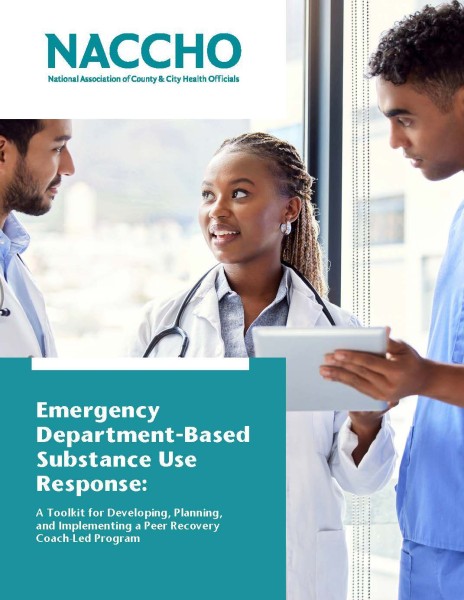Driven by the rise of fentanyl, overdoses now outpace all other causes of death due to unintentional injury combined, and overdose fatalities accounted for over 105,000 deaths over the 12-month period ending in October 2023. The burden of overdose throughout the country is exacerbated by a national response effort that, despite changes for the better, continues to place inordinate focus on punishment and erects deadly barriers between people who use drugs and evidence-based treatment and support. Additionally, while overdose deaths burden all communities, this loss is especially acute in Black and Indigenous Americans, whose communities have been most impacted by the racist war on drugs and whose death rates have been rising precipitously over the last five years. The impact of each of these lost lives has left a tragic and indelible mark on their friends, families, and communities. Many of these individuals visited emergency departments (EDs) prior to fatally overdosing, and every visit that concluded without meaningful engagement about their drug use represents a sadly missed opportunity.
With this context in mind, the National Association of County and City Health Officials is pleased to announce the release of a new resource: Emergency Department-Based Substance Use Response: A Toolkit for Developing, Planning, and Implementing a Peer Recovery Coach Led Program. This comprehensive tool for health systems and their partners, including state or local health departments, provides a guide to the development of peer-led, ED-based programs aimed at identifying and empathetically engaging people who drugs to provide education and drive linkages to medication for opioid use disorder (MOUD), treatment, harm reduction, and other behavioral or social services to improve patient outcomes.
Working collaboratively with the Mosaic Group and the Centers for Disease Control and Prevention (CDC), this toolkit was developed as a step-by-step roadmap that covers evidence-based options for care in the ED, practical strategies for integrating these options, and real-world case studies. At its heart lie four main practices:
- Systemization of universal screening to proactively identify people at risk of overdose
- Integration of peer recovery specialists into the care team. Peer recovery specialists’ lived experience makes them trusted messengers with whom patients are more likely to engage in conversations about their substance use.
- Development of procedures to ensure that interested patients are induced on MOUD during their stay in the ED.
- Establishment of robust community partnerships to ensure continuing care for patients post-discharge.
The NACCHO Overdose, Injury, and Violence Prevention team believes that the adoption of the practices and principles contained in this toolkit will improve care for people who use drugs and reduce the inequitable impact of overdose nationwide. We have worked with many local health departments and EDs to implement similar programs across the country and hope this toolkit will provide others with the knowledge, resources, and examples needed to drive implementation in their own communities.
If you would like to reach out for more information or for a connection to an existing program, please contact Francis Higgins at [email protected].



